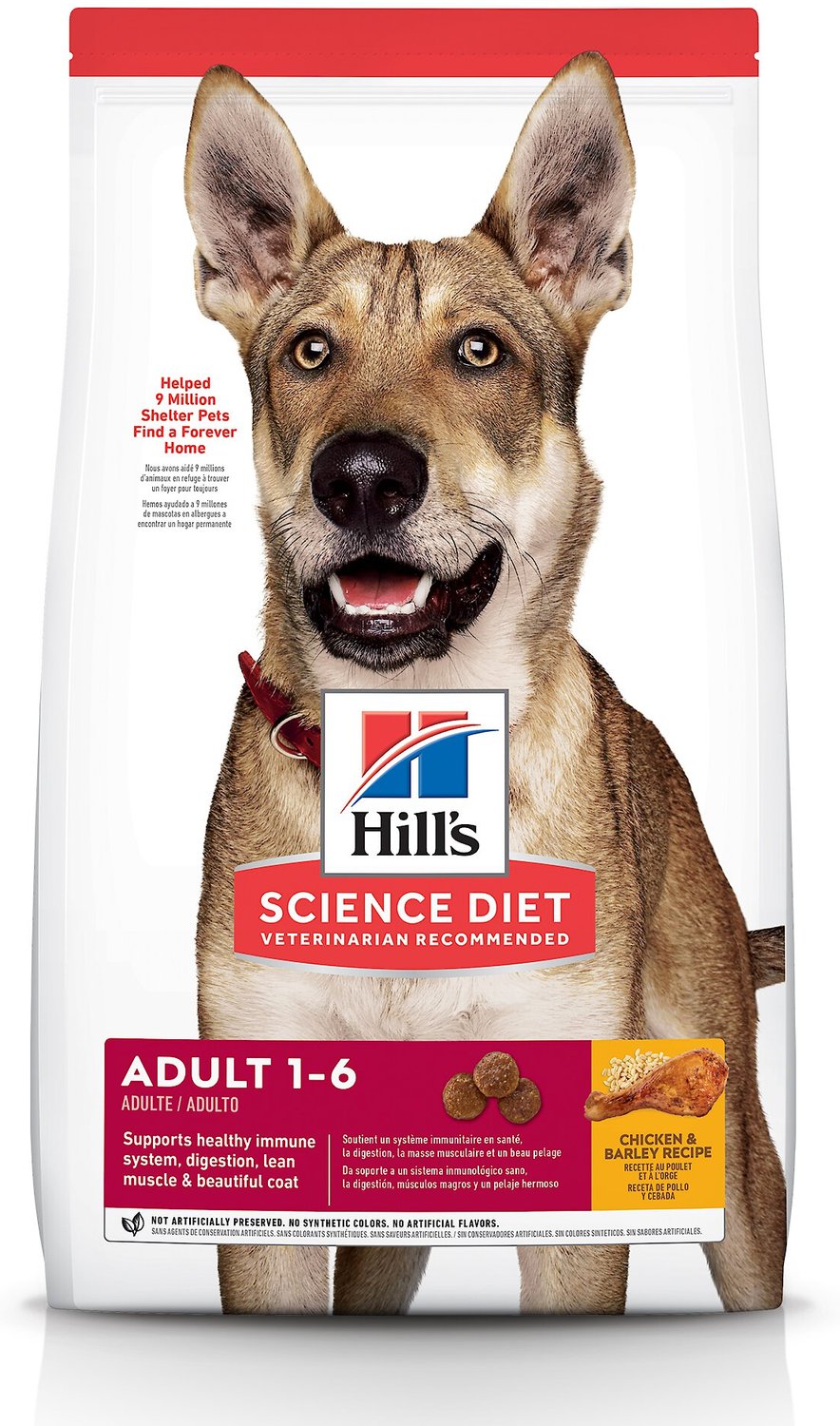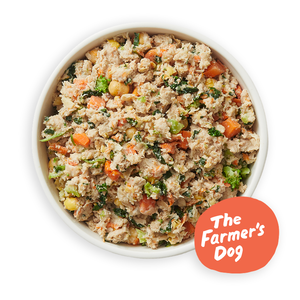What's the Best Dog Food for Australian Shepherds?
Australian Shepherds are a medium size working breed, intensely loyal, and generally healthy. Known as a cattle or ranch dog, Aussie’s are at ease in an open environment with focused activity. Your Aussie needs a job to do and a balanced diet combined with a thorough weekly brushing.
AKC Classification: Herding Group
Exercise Required: 1-2 hours/day
Ideal Weight
Healthy Male Weight: 50-65 lbs
Healthy Female Weight: 40-55 lbs
Breed Summary
The Australian Shepherd is medium in size and a hard worker. Commonly referred to as a ranch dog or cattle dog, Aussies are known for their intelligence and persistence. These dogs would rather move a couch than sit on one. They require consistency in their training since they can easily outsmart their handler. This breed is suited for a high-energy, task-oriented environment. It will stare down, with an icy glare, its charges – sheep, cattle – to bend them to its will. Refined and perfected for ranch work, the misnamed Australian Shepherd is now the iconic western cowboy’s sidekick.
Physical Traits
Medium size, balanced form, course coat
Personality Traits
Intelligent, hardworking, loyal
Health Considerations for Australian Shepherds
Your Aussie will be healthy if kept active and fed proper nutrition. Health concerns are similar to many dogs and may include hip dysplasia, cataracts, and some cancers, so have them evaluated for any issues early on. Keep their ears clean and teeth free of tartar buildup.
Dysplasia (Hip and Elbow)
Dysplasia is a genetic condition where an Australian Shepherd's bones don't fit correctly in their socket. This issue can lead to arthritis and has the potential to be very painful. Surgery may be necessary in some situations, but you can do your best to mitigate erosion and pain with foods that contain these ingredients:
Complete a nutritional assessment to view individualized diet recommendations specifically for your pet.
Foods We Recommend: Australian Shepherd Puppies
When do Australian Shepherds grow out of the puppy stage?
12-15 months old
Aussie puppy diets require a diet with higher caloric content, preferably from quality animal sources. Remember when feeding new food, your puppy may have or may develop allergies to grains and may need a grain-free food. Here are some of our top picks for Australian Shepherd puppies:

Rocky Mountain Recipe with Red Meat Puppy Grain-Free Dry Dog Food

Puppy Chicken Recipe Grain-Free Dry Dog Food

Smart Puppy Original Dry Dog Food

Beneful Healthy Puppy with Farm-Raised Chicken Dry Dog Food
Foods We Recommend: Australian Shepherd Adults
When do Australian Shepherds become adults?
12-15 months old
Your Aussie’s diet should be 100% all-natural with no fillers to address potential allergy issues. You’ll want food that contains quality red meats and/or fish with added vegetables to provide additional vitamins, minerals, and antioxidants along with sources of glucosamine and chondroitin, omega fatty acids, and probiotics. These are some of our top picks:

Duck Recipe Grain-Free Dry Dog Food

MMillennia Beef & Brown Rice Recipe with Peas Adult Dry Dog Food

Science Diet Adult Chicken & Barley Recipe Dry Dog Food

Fresh, Personalized Ingredient Meal Plan
+ Custom, human-grade diet
+ More expensive than kibble
Foods We Recommend: Australian Shepherd Seniors
When do Australian Shepherds become seniors?
6-7 years old
Senior Aussies will need a higher quality protein in their diet. They may become less able to digest or take in nutrients from their food and will need fewer fat calories. Pay close attention to your senior dog's weight by maintaining strict portion controls and encourage activity. Some senior diets we really like for Australian Shepherds include:

Bright Mind Adult 7+ Chicken & Rice Formula Dry Dog Food

Senior Real Chicken, Sweet Potato & Garbanzo Bean Recipe Dry Dog Food

Mature Chicken, Turkey & Brown Rice Recipe Dry Dog Food

Limited Ingredient Diet Turkey & Potato Recipe Senior Dry Dog Food
Affiliate Disclosure
We do not accept money to recommend pet foods. However, we do receive referral fees from online retailers (such as Chewy or Amazon) on qualifying purchases. Our recommendations are neutral, and diet recommendations are made without considering whether we will receive a referral fee.

